Contents
Guide
Adult Children of Alcoholics Series
The Self-Sabotage Syndrome
Adult Children in the Workplace
Janet Geringer Woititz, Ed.D.
author of the
#1 New York Times Bestseller
Adult Children of Alcoholics
Library of Congress Cataloging-in-Publication Data
Woititz, Janet Geringer.
The self-sabotage syndrome / Janet Geringer Woititz p. cm.
Bibliography : p.
ISBN 1-55874-050-3
1. Alcoholism and employment. 2. Adult children of alcoholicsEmployment. 3. Adult children of alcoholicsPsychology. I. Title
HF5549.5.A4W66 1989 89-11031
362.2923dc20
1987, 1989 Janet G. Woititz
ISBN 1-55874-050-3
ISBN-13: 978-0-7573-9756-1 (eBook)
All rights reserved. Printed in the United States of America. No part of this publication may be reproduced, stored in a retrieval system or transmitted in any form or by any means, electronic, mechanical, photocopying, recording or otherwise without the written permission of the publisher.
HCI, its Logos and Marks are trademarks of Health Communications, Inc.
Publisher: Health Communications, Inc.
3201 S.W. 15th Street
Deerfield Beach, FL 33442-8190
Cover redesign by Lawna Patterson Oldfield
Inside book redesign by Dawn Grove
To my family at work who have demonstrated that caring, awareness, hard work and commitment make a healthy environment possible.
And to my family at home who have demonstrated that caring, awareness, hard work and commitment make a healthy environment possible.

ACKNOWLEDGMENTS
T he impact of growing up in a dysfunctional family is experienced in every aspect of adult life. The workplace is no exception.
In order to demonstrate the ways in which the work environment becomes a home away from home, I drew on both my own clinical experience and that of a number of colleagues. I acknowledge the assistance of the following consultants:
Chapters 9 and 10 draw heavily on conversations with Mel Sandler, M.S.W. Mel is Managing Director of the Institute for Counseling and Training, West Caldwell, New Jersey. His career includes extensive involvement in workplace settings, counseling employees and training management personnel to deal with employees with personal problems. Settings in which he has worked include United Airlines; the American Federation of State, County, and Municipal Employees; and the International Ladies Garment Workers Union. He currently acts as a consultant in corporate workplace settings.
Other chapters benefited from the input of:
Administrative
Gyni Garner, M.S.W.Charlotte, North Carolina Bob Lynn, N.C.C., C.A.C.Piscataway, New Jersey Kerry Peltier, M.A., C.A.C.Verona, New Jersey
Professional
Pat Clyne, B.A., R.N.Astoria, New York Kathi Goode, M.A.Montclair, New Jersey Rev. James Mahoney, Ph.D.Chatham, New Jersey Audrey Roberts, M.A.Montclair, New Jersey
Clinical
George Brines, A.A.S., C.A.C.Lafayette, Indiana Dana Finnegan, Ph.D.South Orange, New Jersey Emily McNally, M.A.New York, New York Martha Moore-Russell, Ph.D.Princeton, New Jersey Amy Stromsten, C.A.C.Cambridge, Massachusetts Bick Wanck, M.D.Conifer Park, New York
Research
Coleen Peruo, B.A.East Rutherford, New Jersey Patrick Peruo, Ph.D.East Rutherford, New Jersey
General
Jackson Braider, M.A.New York, New York Ed Gogek, M.D.Providence, Rhode Island Matt Johnson, B.S.W.Anchorage, Alaska Marilyn StagerHawthorne, New Jersey Lisa Woititz, B.A.Montclair, New Jersey
Employee Assistance Programs
Debby Bem, M.S.W.New Rochelle, New York Leighton Clark, M.S.W.Chicago, Illinois Betty-Ann Weinstein, M.S.W.Washington, D.C.

PREFACE
W hen I wrote the book Adult Children of Alcoholics, it was with children of alcoholics in mind. Since its publication in 1983, it has become clear that what is true for children of alcoholics is just as true for children growing up in other types of dysfunctional families. If you did not grow up with alcoholism, but lived, for example, with other compulsive behaviors, such as gambling, drug abuse or overeating, experienced chronic illness, profound religious attitudes, were adopted, lived in foster care or in other potentially dysfunctional systems, there is a good chance that you will identify with the characteristics described for adult children of alcoholics.
That is why I have used the term adult children in the subtitle of this book without being more specific. The term adult children has come to indicate those adults who grew up in a variety of dysfunctional families and need to improve the relationship they have with the child part of themselves. This problematic relationship causes difficulty in all aspects of their lives. The workplace is no exception. The cluster of symptoms that relate to difficulties in the workplace is described in this book (formerly titled Home Away from Home). I define these symptoms as the Self-Sabotage Syndrome.
Janet G. Woititz

INTRODUCTION
T he impact of growing up with alcoholism pervades every aspect of adult life. It influences feelings of self, relationships and ones ability to get things done, regardless of whether one is looking at the home, social or work environment.
Since a large portion of ones waking hours is spent in the workplace, the way one feels and behaves in that environment, whatever or wherever that setting may be, is a significant part of ones life.
The same dynamics that cause difficulty at home may serve one in very good stead in the workplace: A secretarys family may go nuts with her compulsive need for order and attention to detail, but her boss probably values it greatly. Your friend may be very grateful that you are driving him to work while his car is in the shop, but your supervisor may see your lateness as a hostile act.
Similar traits manifest themselves differently depending on the environment. These examples of issuesissues involving control of environment as a reaction to growing up with anarchy and the inability to say no for fear of rejectionare fairly common to children of alcoholics. This study evolved in order to satisfy my own curiosity as to how these issues play out in the workplace.
Regardless of the degree of success that you achieve in the world of work, if you are an ACoA, there are questions that continue to plague you. These are the result of feelings that get in the way of your finding the satisfaction appropriate to your job performance or finding the courage either to assert your needs or make necessary changes. This is not only confusing to you, but damaging to your self-image. You end up very angry at yourself. Why do I when I know better? Why dont I when I know how? Why cant I accept praise? Why does criticism devastate me? Why do I sabotage success? Why am I overwhelmed so much of the time? Why is everyone else better able to cope than I? Is there any end to it? Could my parents really be responsible? And on and on this seemingly endless list of questions goes.


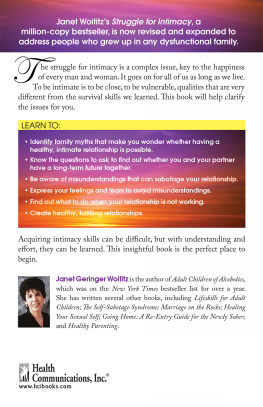
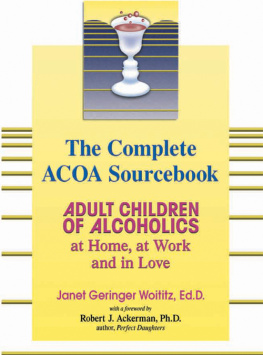
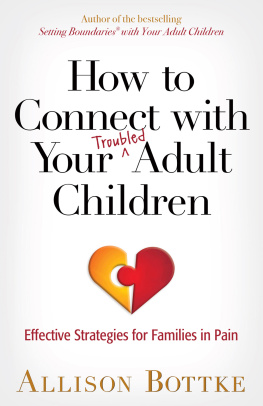
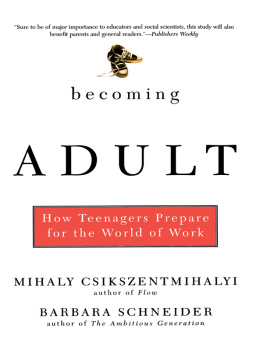

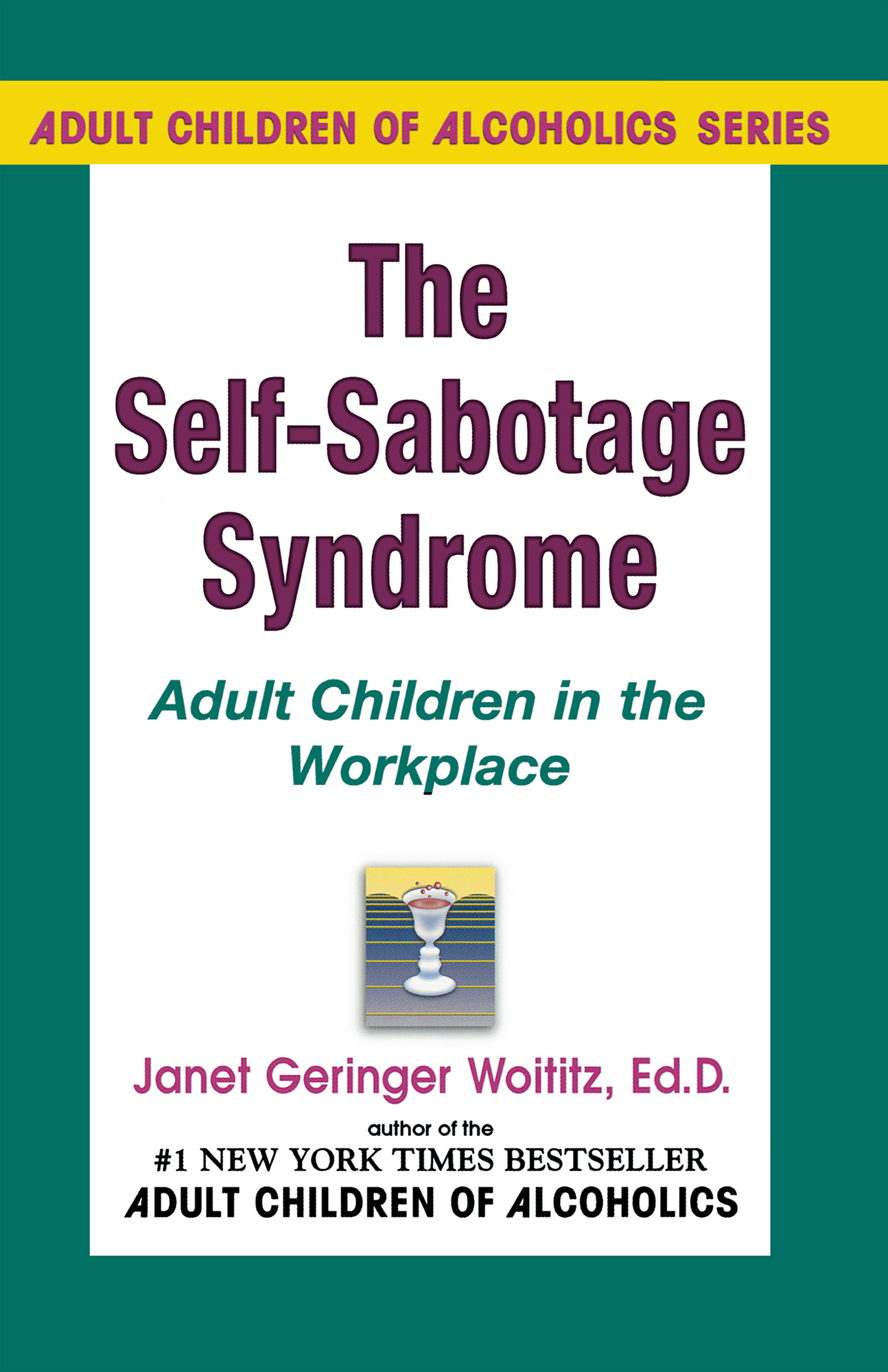

 ACKNOWLEDGMENTS
ACKNOWLEDGMENTS